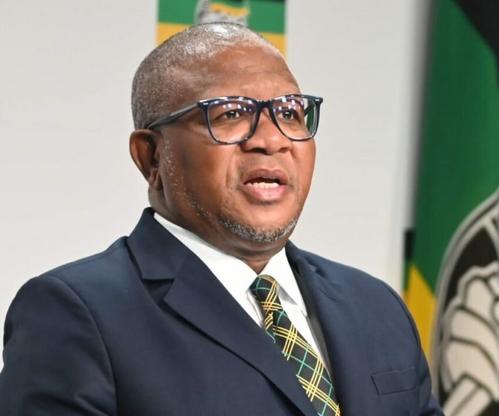
A dramatic move in Pretoria
This week in Pretoria, the secretary-general of the African National Congress, Fikile Mbalula, filed an urgent court application, saying he fears for his life following public claims that tie him to the 2015 murder of businessman Wandile Bozwana. The legal papers name commentator Brown Mogotsi as the respondent whose statements Mbalula is asking the court to retract.
The heart of the matter
Mogotsi allegedly made broadcast and social media remarks linking Mbalula to Bozwana’s death and to a corrupt tender involving Mbalula’s wife. According to Mbalula’s affidavit, he has never been a suspect or witness in the case, and the killers convicted in Bozwana’s murder received sentences of 30 years. He argues the accusations have endangered his safety and unfairly painted him as both a murderer and a corrupt official.
Why the timing matters
The court papers say a cease-and-desist letter failed to reach Mogotsi, who is reportedly untraceable at his registered addresses. Mbalula now wants a court order compelling Mogotsi to withdraw his statements, issue a public apology, and refrain from repeating the allegations. He is also claiming damages of R500 000 and punitive legal costs. The court set a deadline for Mogotsi to file his answering affidavit, and the matter is on urgent roll.
Public reaction and political backdrop
In South Africa, this kind of headline doesn’t happen in a vacuum. Social media platforms lit up as the story broke. Some users expressed support for Mbalula, remarking that the court move shows he is proactive in defending his reputation and safety. Others were sceptical, pointing to the long history of allegations involving high-profile politicians and the murkiness surrounding them. On X (formerly Twitter), one user wrote, “If a public figure resorts to urgent court papers to clear his name, it means the media storm has already taken its toll.”
A deeper look at the context
Bozwana was shot dead along Pretoria’s Garsfontein Road on 2 October 2015 while driving with an associate who survived. The murder investigation ended with convictions of the taxi-boss figurehead and three others. Mbalula says police never identified him as a suspect or charged him. Meanwhile, English-language commentary and politics in South Africa often intersect in sharp ways—lawsuits, media statements, and social media denunciations have become part of the regular rhythm of public life.
What this could mean going forward
By going to the court so openly, Mbalula is sending a message not only about his personal stake but also about the power of public perception and reputation in South African politics. Should Mogotsi fail to respond, or the court decide in Mbalula’s favour, it could set a precedent for how allegations are managed in the media age. For the ANC, it is another reputational test, especially given broader questions about accountability, corruption, and the rule of law in recent years.
The human side of it all
Beyond the politics and the legal filings is a man who says his life feels under threat. The phrase “I fear for my life” is rarely used by senior politicians in the country. Whether you believe the allegations or not, the statement forces us to reflect on what it means when public figures feel they are in physical danger because of words spoken in the media or on social platforms. In a nation that has undergone such dramatic change and still lives with layers of mistrust, that alone is a heavy moment.
Source: Briefly News
Featured Image: Inside Politic




